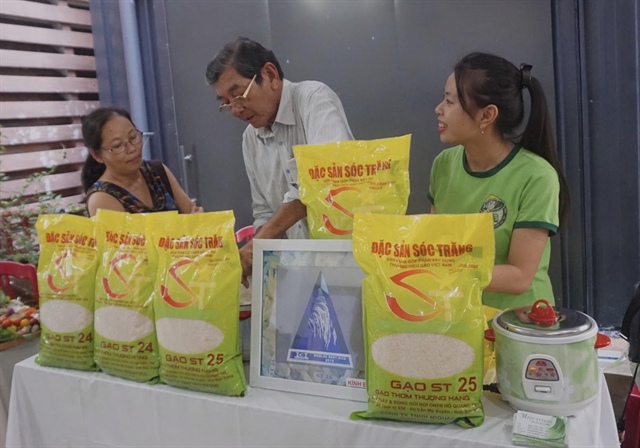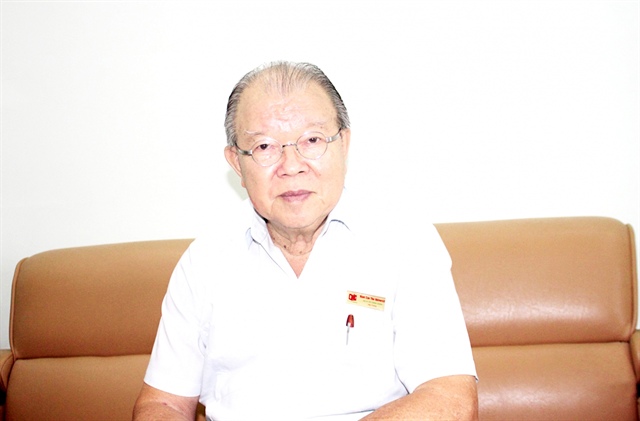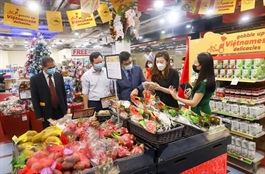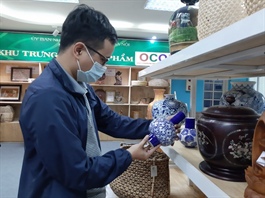Government efforts to protect Vietnamese rice trademarks
Government efforts to protect Vietnamese rice trademarks
The Rice Trader, the leading trade publication of the global rice industry, has warned Vietnam about losing its rights to enter the World’s Best Rice Contest in 2021 and the following years. Professor Vo Tong Xuan, rector of the Nam Can Tho University, spoke about the issue in an interview with Vietnam Economic News’ Thuy Duong.

Vietnamese ST25 rice has been exported to many countries around the world |
What are your views on Vietnam possibly losing its rights to enter the World’s Best Rice Contest because of violations of intellectual property rights?
This year, The Rice Trader will organize the World’s Best Rice Contest in Dubai. I have read the information on The Rice Trader website but have not seen any official announcement about Vietnamese ST25 rice losing its rights to participate in the contest. The warning sent to Ho Quang Cua, the main developer of the rice, was due to a large number of unauthorized companies selling the ST25 rice variety. Many Vietnamese companies have been printing the “World’s Best Rice” title on their product packages without permission from The Rice Trader, which is a copyright infringement. In addition, a fight on trademarking ST25 rice in the US market is causing misunderstanding and confusion for consumers.

Professor Vo Tong Xuan, rector of the Nam Can Tho University |
What should Vietnam do to protect rice trademarks?
If Vietnam loses its rights to participate in the contest, it will affect the image and reputation of Vietnamese rice. Therefore, the Ministry of Agriculture and Rural Development needs to raise its voice with strong commitments to let the world know that Vietnam does not accept violations of intellectual property rights and trademark copyrights. In particular, there should be an immediate move to fight for the rights to enter the World’s Best Rice Contest for not only ST24 and ST25 rice varieties but also other fragrant rice.
What measures should be taken in the long term?
Thailand and Cambodia have promoted their products in a methodical manner after winning the “World’s Best Rice” title. Specifically, the Thai Ministry of Commerce has conducted origin traceability and required traders to have an export license confirming that they are selling the right rice variety. Thanks to continuous efforts, Thai fragrant rice has been exported to the US at total annual volume of more than 500,000 tonnes.
When Vietnamese ST25 rice was honored, the country only awarded a certificate of merit to the developer of the rice and there was no move to recognize and protect the trademark. ST25 has many advantages compared to Thai fragrant rice as it yields two or three crops per year and can adapt to the difficult conditions induced by climate change.
Vietnam needs to support organizations and individuals in the protection of intellectual property rights for the ST25 rice variety, turning it into an official Vietnamese rice variety for trading. In addition, the country needs to seek other rice varieties and vote for them to be designated as official Vietnamese varieties. When rice is recognized, the DNA diagram must be kept and archived in order to prevent foreign companies from stealing the brand.
| ST25 rice is the result of 25 years of work by agronomic scientist Ho Quang Cua and his colleagues who cross-bred the premium fragrant rice of the Mekong Delta province of Soc Trang, described as having a sweet taste and a hint of pineapple flavor. In 2019, ST25 was named the winner of the World’s Best Rice Contest in the Philippines, marking the first time a Vietnamese rice variety had won the title in the contest’s 11-year history. |



















